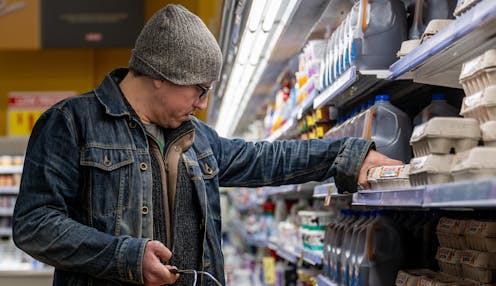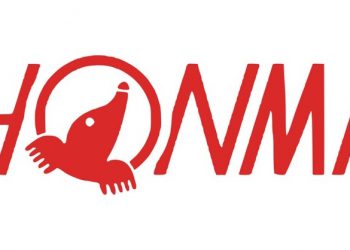
President Donald Trump’s pick for director of the Health and Human Services Department, Robert F. Kennedy Jr., has announced a bold plan. He wants to “Make America Healthy Again.”
Kennedy’s strategy has gotten a lot of attention for its oddities, such as his opposition to vaccine mandates and support for raw milk. But it includes some concepts that many public health experts consider sensible, such as calling for a stronger focus on chronic disease prevention and seeking more restrictions on prescription drug advertising aimed at consumers.
But he’s also demanding a ban on junk food from the Supplemental Nutrition Assistance Program. Banning junk food from SNAP is something that has divided public health experts for years.
As public health researchers, we’ve devoted our careers to helping reduce chronic diseases. We agree with Kennedy that a healthy diet and sound nutrition are important ways to improve the nation’s health. We also know from our own research that safety net programs, including SNAP benefits – which are still sometimes called food stamps – are staving off hunger and food insecurity for millions of Americans.
And we’re certain that adding to the restrictions that already limit access to SNAP benefits do little to make Americans healthier.
What is SNAP?
Over 42.1 million Americans, about 13% of all families, receive SNAP benefits. More than 1 in 4 of the households enrolled in the program include someone who is earning at least some income.
More than 4 in 5 families getting SNAP benefits include a child, someone over 65 or someone with a disability. These benefits are distributed on a monthly basis through an electronic benefits transfer card that looks and works like a credit or debit card and can be used at supermarkets and other approved retailers. The federal government has spent more than US$110 billion annually on this program in recent years.
Benefits help get food on the table but typically don’t cover everything a family needs to eat. The average monthly benefit is $195 per person.
Americans who earn less than 130% of the poverty line are eligible for SNAP. In the 2025 fiscal year, a family of three can’t make more than $2,152 a month in net income or have assets of more than $4,500 if a household includes someone over 60, and $3,000 if it doesn’t.
Adults without children or disabilities can’t get these benefits for more than three months every three years unless they meet the program’s work requirements by being employed or spending at least 20 hours weekly in a training program. People who are on strike and foreigners living in the U.S. without authorization are ineligible. People with prior drug-related felony convictions are federally banned from SNAP for life, but states can waive this rule. This program is federally funded but administered by the states, which have some leeway in determining eligibility.
People enrolled in SNAP already face some restrictions on what they can buy with their benefits. They can’t use SNAP to purchase premade or restaurant meals, alcohol, tobacco, or things such as diapers, vitamins and toilet paper.
Why restrict SNAP?
Since SNAP is administered by the U.S. Department of Agriculture, Kennedy would have very little power to change SNAP’s rules should the Senate approve his nomination following the controversial politician’s upcoming confirmation hearing on Jan. 29, 2025.
Still, we’re concerned that his support for new restrictions could help sway the authorities who would be responsible for such a policy change.
Proposals to ban particular foods from SNAP have been floated many times by state legislators and members of Congress over the years.
These bills have generally been designed to exclude supposedly luxury items, such as steak and seafood, or aimed at barring purchases from a different supermarket aisle: candy, soda and other junk foods.
States can’t make this kind of modification without the USDA’s authorization. And so far, the USDA has rebuffed calls for it to allow such measures. Even without the agency’s support, Congress can make changes to these policies in the Farm Bill, which could in the future force the USDA to allow these restrictions in states that ask for them.
The Trump administration, including Kennedy, has signaled its interest in these kinds of restrictions.
Why SNAP restrictions won’t make America healthier
While improving the American diet is a worthy goal, research that we and other scholars have done makes it clear that adding new restrictions to SNAP will do little to help us become a healthier nation.
First, many studies have found that nearly all Americans could eat healthier.
The rich and the poor alike consume unhealthy food in the U.S.
Studies show that while lower-income Americans often spend more of their food budget on unhealthy stuff than more affluent people do, families in the middle and at the top of the income ladder still purchase lots of junk food.
Unsurprisingly, those purchases reflect what we’re eating: Americans at all income levels have diets that don’t satisfy federal dietary guidelines. Spotlighting the poor food choices of SNAP participants would be a distraction from these facts and would risk further stigmatizing a successful anti-hunger program.
Maintaining a good diet is not cheap or straightforward, especially on a low income. The poorest communities have far more inexpensive fast-food chains and dollar stores than their wealthier neighbors, as well as more ads for unhealthy products. Even when they get SNAP benefits, many Americans still struggle to make ends meet, and studies show how this negatively affects the quality of their diets.
Another reason SNAP restrictions wouldn’t make America healthier is that diet is just one of many contributors to chronic diseases. Your level of physical activity, exposure to pollution, stress and genetics, among other things, shape your risk of getting heart disease, diabetes or other chronic diseases.
Flexible but don’t cover all needs
SNAP benefits are fairly flexible, covering just about anything people might want to eat, even if they have dietary restrictions due to their culture or health conditions. The program helps Americans afford most of their basic necessities, although it fails to pay for all the groceries most people who rely on the program need to buy in the course of a month.
SNAP’s main function is preventing the worst effects of hunger and food insecurity for the more than 41 million people relying on it.
There are other ways for the government to help make Americans healthier besides the imposition of stigmatizing restrictions on SNAP. For example, it can create matching programs for SNAP dollars spent on fruits and vegetables, which would give retailers incentives to offer more produce and make it easier for people who get SNAP benefits to buy more healthy food. The USDA has begun to support this kind of effort in several states.
![]()
Benjamin Chrisinger receives funding from The Research Innovation and Development Grants in Economics (RIDGE) Partnership.
Danielle Krobath does not work for, consult, own shares in or receive funding from any company or organization that would benefit from this article, and has disclosed no relevant affiliations beyond their academic appointment.













